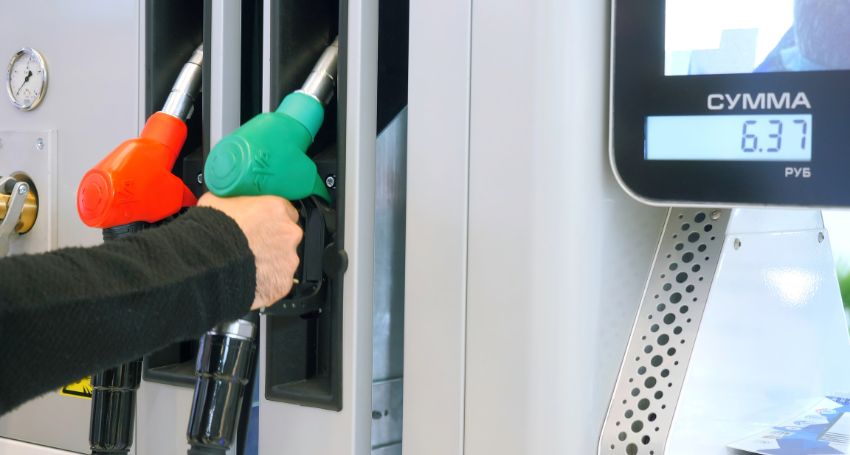
The debate between hydrogen vs EV cars is heating up as the world seeks cleaner, more sustainable ways to move away from internal combustion engine vehicles. Both hydrogen and electric cars promise to reduce emissions and reshape the future of transportation. But which one is truly better for the future? This article is worth reading because it breaks down how electric vehicles and hydrogen cars work, compares their fuel systems, environmental impact, infrastructure, and more, helping you decide which direction the automotive industry might ultimately take.
What Are Hydrogen Cars and How Do They Work?
Hydrogen cars, also known as hydrogen-powered vehicles, use hydrogen gas stored in a high-pressure tank to power a fuel cell. Inside the fuel cell, hydrogen molecules break apart and react with oxygen to generate electricity. This electricity powers an electric motor, just like in a battery electric vehicle.
Unlike gasoline cars, hydrogen cars produce only water vapor as an emission. The fuel cell electric vehicle is efficient and silent, providing a clean ride. However, hydrogen is currently produced using methods that can vary in sustainability, which raises concerns about the environmental impact of hydrogen production.
How Do Electric Cars Work?
Electric cars use energy stored in a battery to power an electric motor. These battery-powered electric cars must be plugged into EV charging stations to replenish their energy. EV batteries store electricity that powers the drivetrain, offering a zero-emission alternative to traditional internal combustion engine vehicles.
Battery electric vehicles are popular due to their simplicity, fewer moving parts, and rapidly growing infrastructure. With the rising number of EV models, the popularity of electric vehicles continues to surge in markets worldwide.
Read more: Recycling EV Batteries: Challenges in End-of-Life Battery Management
Hydrogen Cars vs Electric Cars: What’s the Difference?
When comparing hydrogen cars vs electric cars, the main difference lies in how each vehicle stores and uses energy. Hydrogen vehicles rely on a fuel cell and a tank of hydrogen gas, while electric vehicles use a battery charged by electricity.
Fuel cell vehicles can refuel quickly—similar to gasoline cars—while EVs usually require longer charging times. However, EV charging infrastructure is more widespread than hydrogen refueling stations. In terms of efficiency, battery electric vehicles generally use less energy to travel the same distance compared to hydrogen-powered cars.
What Are the Pros and Cons of Hydrogen Cars?
Hydrogen-powered cars offer several benefits. They have a longer driving range, fast refueling times, and emit only water vapor. A vehicle like the Toyota Mirai demonstrates the potential of hydrogen fuel cell electric vehicles for clean transportation.
On the downside, hydrogen infrastructure is limited. Hydrogen is difficult to store and transport, and the method of hydrogen production can impact its overall environmental benefit. Additionally, the price of hydrogen fuel remains high compared to electricity, and hydrogen vehicles are still less common than EVs.
Read More: Choosing the Right Motor for EVs: Electric Motor, Engine, and Vehicle Insights
What Are the Advantages and Disadvantages of Electric Vehicles?
Electric vehicles offer a wide range of benefits, including high efficiency, widespread availability, and low operating costs. EV charging is increasingly convenient with expanding networks of fast chargers. Cars use energy more effectively in electric form, and battery performance continues to improve.
However, battery production has its own environmental challenges. Charging takes time, especially on long trips, and EV batteries can degrade over time. Still, the market for electric vehicles is growing rapidly, with more models and improved technologies being introduced each year.
Driving Range: Between Hydrogen and EVs
Driving range is a key factor in the hydrogen vs EV cars discussion. Hydrogen-powered vehicles often offer a longer range—sometimes over 300 miles per fill—whereas electric cars can vary based on the battery size and usage.
While some EVs, like models from Tesla, offer competitive ranges, charging can take longer than refueling a hydrogen car. However, improvements in battery technology and fast charging infrastructure are helping to close the gap.
Read more: Can You Drive an Electric Vehicle Safely in the Rain? Here’s What EV Owners Should Know
How Do You Fuel or Charge These Vehicles?
To power a hydrogen vehicle, drivers visit a hydrogen filling station where hydrogen gas is pumped into a fuel tank. The hydrogen is stored under high pressure and powers the fuel cell electric system.
Electric cars are charged through EV charging stations. Charging can be done at home or at public stations, and options range from slow Level 1 charging to ultra-fast DC charging. While refueling a hydrogen vehicle is faster, EV charging infrastructure is more accessible.
What About the Environmental Impact?
Both electric cars and hydrogen cars aim to reduce emissions, but their environmental impact depends on how their energy sources are produced. Producing hydrogen can generate emissions unless it is green hydrogen made by splitting water into hydrogen and oxygen using renewable energy.
Electric vehicles are cleaner overall, especially when charged with renewable electricity. However, the environmental cost of battery production and disposal must also be considered. Compared to hydrogen, battery electric vehicles often have a lower total environmental impact.
How Available Are These Technologies Today?
The number of electric cars on the road far exceeds the number of hydrogen cars. The charging infrastructure for EVs has expanded significantly, with thousands of charging stations available across many countries.
The hydrogen infrastructure is still in early stages. Limited hydrogen refueling stations and the high cost of production make hydrogen vehicles less accessible. However, the market for hydrogen is growing slowly, and many experts believe hydrogen could complement battery electric vehicles in the future.
Which Technology Is Better for the Future?
Determining which is better for the future—hydrogen or electric—is complex. Electric vehicles have the lead in adoption, infrastructure, and public support. With lower operating costs and a growing number of models, battery-powered electric cars are positioned to dominate passenger transportation.
Hydrogen vehicles, on the other hand, could excel in long-haul trucking, heavy industry, and applications where fast refueling and high energy density are essential. For now, hydrogen cars face more hurdles, but continued investment could make them a valuable part of the transportation ecosystem.
Conclusion
The hydrogen vs EV cars debate reflects a broader transition to clean energy mobility. Electric cars currently dominate in terms of market share, infrastructure, and user convenience, making them the more practical option for most consumers. However, hydrogen cars still present unique benefits, especially in specific use cases like commercial transport and heavy-duty applications. As both technologies evolve, a diversified approach may emerge, where hydrogen and electric vehicles coexist to meet different mobility needs. Understanding the differences and strengths of hydrogen vs EV cars is essential as we shape the future of transportation.



